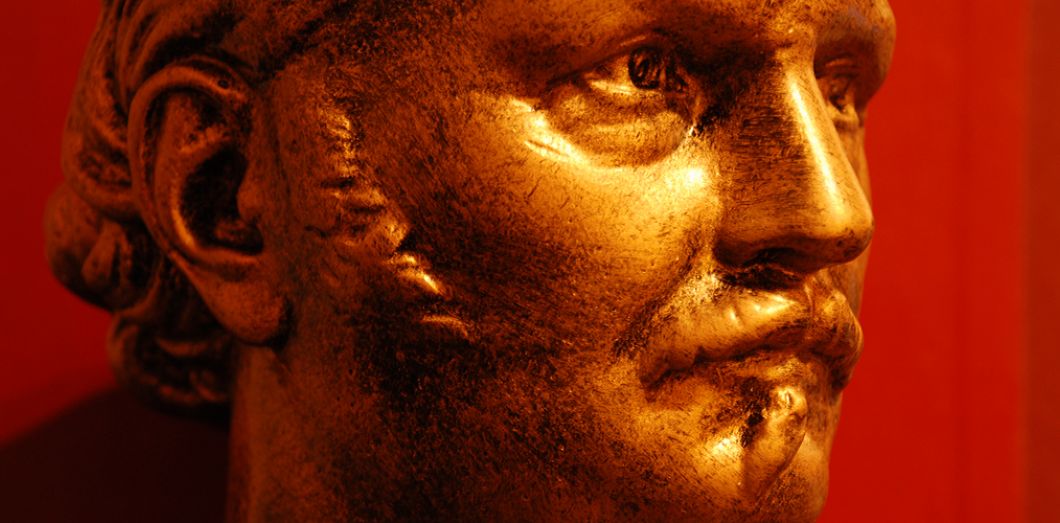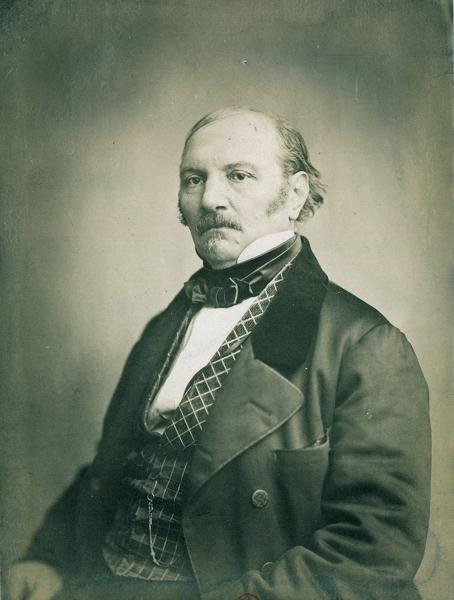The career of Allan Kardec (Part III - Final)

THE CAREER OF ALLAN KARDEC (PART III - Final)
Steve Hume
I have already mentioned that the Kardec teachers describe the Spirit World and spirit life almost entirely in terms of the effect that personal morals have on the individual in this world and the next. Rivail was not afraid to show both sides of the coin. Heaven and Hell (1864) was not only a description by the spirit teachers of the real nature of these states, it also included communications from recently deceased spirits from all moral classes...from the most evil, to the most blameless and charitable. Each type of personality described their current conditions and how their actions on Earth had contributed to their current joys or sorrows. Contrary to the dogmas of the Catholic church which painted a picture of never ending suffering even for those whose only sin was not to be Catholic, the Spirit communicators maintained that suffering in the next life only lasts until the individual has made the necessary effort to rectify the cause, and that everyone is given an opportunity to achieve this.
Those who have experience in the difficult field of rescue work might be interested in the case of a recently executed murderer... 'a systematic poisoner, a physician who had employed his professional position as a means to the accomplishment of the long tissue of horrible murders for which he had just been executed'. This man, upon manifesting spontaneously at a seance, and despite complaining that 'Light dazzles and pierces, like sharp arrows, the innermost recesses of my being', contemptuously turned away from the help offered by the circle... 'I reject your pity...I ask for nothing...I suffice to myself; and I shall be able to resist this odious light'. Rivail states, however, that this spirit, eventually began to improve, repented and became the author of 'many wise and good communications'.[56]
Other murderers described a state of confusion and a terror at the prospect of meeting their victims. One who had told how this had actually happened to him described why it caused him such suffering:- Q. 'What do you feel on seeing them?' A. 'Shame and remorse...and I hate them still...They pray that I may expiate my crimes. You cannot imagine what a horrible torture it is to owe everything to those we hate.'[57]
There were also communications from many other types of spiritual miscreant. Some, although they had committed no evil during their lives, had achieved nothing good either and expressed remorse at this. Others who had been blatantly greedy expressed their desire to give in some way. Conversely, those who had led good lives described their relative happiness and the hope that they may continue to be of service to others in their new life.[58] However, the chapter that many Spiritualists would regard as being highly controversial is that in which Spirits describe their 'Terrestrial Expiations', or how they had atoned for past crimes by returning to Earth or reincarnating. One such case involved the spirit of a young servant (a footman) to an acquaintance of Rivail's who had died suddenly whilst on leave. The spirit told Rivail, through a medium, that in a former life he had been the spoilt child of rich parents who had both died leaving him destitute. He had then been taken in by a friend of his father's who had treated him like his own son but of whose kindness he had been ungrateful. To atone for this when they had both reincarnated, he had done so in a position where he could become his former guardian's:- 'I had determined to expiate my former pride by being born, in my new existence, in a servile position; a determination that afforded me the opportunity of proving my gratitude to him who had been my benefactor in my previous incarnation. I even had the opportunity of saving his life. This humble existence has proved very useful to me. I possessed sufficient strength of character to avoid being corrupted by the contact of surroundings that are almost always vicious; and I thank God that I thus earned the happiness I now enjoy.'[59] Rivail then asked what the circumstances of the life-saving incident had been and was given an account, given in the book, that was later verified by the boy's former employer.
It is notable, however, that many of the spirits questioned could not remember any former existence (other than that which they had just left) let alone what relevance such may have had on their present circumstances. The Kardec spirits' explanation for failure to remember former lives was that such remembrance was only permitted if and when it should serve some useful purpose and that such memories would usually emerge only gradually, perhaps only after a great period of time. Whatever the ultimate truth regarding reincarnation may be, it remains the case that it is the means by which Spiritists continue to rationalize morality and ethics within a context of 'Divine' 'justice'. It is also the case that rebirth is not only seen as being a mechanism by which we atone for past sins nor is it viewed as 'compulsory'. The Kardec teachers emphasized that reincarnation is usually a matter of conscious choice after an interval in the Spirit World that is as short or long as individual circumstances demand and that it often occurs because a spirit wishes to perform some charitable act for one less fortunate or perform a particular spiritual mission. Therefore it would be quite wrong to assume that everyone who suffers on Earth is being 'punished' for past sins and therefore deserve their suffering. The Spiritist version of the doctrine of reincarnation demands that, even if this were to be the case, those who suffer for this reason must still be treated with compassion.[60]
As we shall see, it is also the case that Spiritist belief in reincarnation has not led to the justification of social inequity in Brazil (where the movement is a major religion) that one sees in the Hindu caste system of India. On the contrary, it underpins the massive part that Spiritism plays in providing social welfare to the poor in that country and also its contribution to the treatment of mental illness. Hess mentions that it was a particular wish of Rivail's that the medical profession should take notice of the spirits' teachings on insanity,[61] which they said was often caused by natural, though uncontrolled, mediumship that had turned into a form of spirit obsession.[62] In 1862 and 1863 he devoted a series of articles in Revue Spirite to patients at the asylum of Morzines who he regarded as being victims of this unhappy condition which was sometimes the result of malign spirit personalities exacting revenge on enemies from former existence's who had since reincarnated.[63]
Unfortunately however, Rivail's own hopes for Spiritism would not be realized in either his own lifetime or his own country. I mentioned earlier the accuracy of the 'Spirit of Truth's' prediction of the opposition that he would face from both the French Establishment and some within in Spiritism. Rivail had also been warned that the strain of leading the movement would have a disastrous effect upon his health and would lead to an early passing. Ten years after the prediction, in 1867, he commented:- 'I have known no peace and more than once I succumbed; under the excess of work, my health has deteriorated and my life has been compromised...Everything predicted in the communication of the Spirit of Truth has come to pass.'[64]
On March 31 1869 having just finished drawing up the constitution of a society that he intended to carry on his work, Hippolyte Leon Denizard Rivail, better known as 'Allan Kardec' died suddenly from the rupture of an aneurysm of the heart whilst sitting at his desk engaged in the act of tying up a bundle of papers.[65]
Rivail was buried in the famous cemetery of Montmarte in Paris and his friend the eminent astronomer and psychical researcher, Camille Flammarion spoke at his funeral. Today, his grave is a site of pilgrimage for Spiritists from around the world and there is an annual ceremony of remembrance there that is attended by hundreds. But this adoration comes almost entirely from abroad because after Rivail's passing the Spiritist Movement in France and the rest of Europe underwent a steady decline to the point that, today, it barely exists at all. In 1873, however, four years after Rivail's passing the Society of Spiritist Studies was formed in Rio de Janeiro, Brazil.[66]It was here that Spiritism would grow steadily until it would eventually come to fulfill the leading role in society that Rivail had envisaged.
Some years ago a friend of mine who had expressed an interest in spirit philosophy borrowed my rather dog-eared copy of The Spirits' Book and then, shortly after returning it, embarked upon a six-month long trip to Latin America. However, for some reason we did not discuss the book before his departure. This chap left the UK thinking that he had just read an extremely obscure, if interesting, work by a forgotten nineteenth-century Frenchman; which, to all intents and purposes, he had, as far as this country is concerned. Upon his return, however, he told me of his surprise upon walking down a street in Brazil to see a rather large building that was adorned with the name 'Kardec'. Thereafter, he found that practically every Brazilian that he met knew of the name and that some had even read "The Spirits' Book".
Spiritism has grown steadily in importance in Brazil since it arrived from France, to a point where today it is an integral part of Brazilian life amongst all social classes. The influence of Kardec over the movement can be gauged by the fact that is often referred to as Kardecismo, but this is also to distinguish Spiritism from Umbanda and Candomble, [67] two cults that, although they are based on spirit mediumship, have African origins. The writer Guy Lyon Playfair, who lived and worked in Brazil for many years, quoted the results of a public-opinion poll conducted in 1971 by a leading Brazilian magazine in his book The Unknown Power. Whilst 70% of Brazilians declared themselves to be Catholics as opposed to only 11% who claimed to be Spiritists; 68% said they believed Spiritism to be valid, 49% had visited a Spiritist centre, 27% had felt the influence of spirits in their lives, and 15% claimed to have communicated with discarnates. Only 1% of those who claimed to be Catholics were able to state the basic tenets of their religion. [68] This led Playfair to suspect that '...many Brazilians were good Catholics on Sunday mornings and good Spiritists the rest of the week...Brazilians profess Catholicism because their fathers did, and Spiritism because it works for them,often transforming their lives.'[69]
It is the practical work that Spiritism does for Brazilians, particularly for the poor and disadvantaged, that appears to be at the root of the movement's success. This, of course, was the Kardec communicators' prescription for the successful use of mediumship in the widest sense. Despite the fact that the literature of Brazilian Spiritism has been added to by many others, such as Adolfo Bezerra de Menezes (sometimes referred to as the 'Brazilian Kardec') and the key concepts of Kardec have been built upon, the concept of charity remains at the heart of the movement's approach to mediumship. Francisco Candido ('Chico') Xavier is probably the best example of the Spiritist approach to mediumship in action.[70] Despite having received only the barest education he has become Brazil's most prolific 'author' who has produced, on average, three books a year since 1932 on such diverse subjects as Spiritist philosophy, literature, history and science. His books have sold many millions, have been translated into many languages, and his name is a household world in his native country. However, 'writer' would probably be a more appropriate term for Chico, because he is an automatic writing medium who claims no credit or money for his prodigious output. He worked as a minor government official until his retirement in 1961 and still lives extremely modestly despite the massive royalties from his books which are all ploughed into helping the poor.
Playfair mentions a huge complex of buildings built by the Sao Paulo State Spiritist Federation (FEESP) called the Casa Transitaria that provides help to poor families and education for children from the slums, and also the Casa Andre Luiz in Guarulhos that gives care to 1,400 retarded children.[71] In most large towns and cities in Brazil one will find Spiritist job training centres, orphanages, nurseries, hospitals and even hospices, such as the House of Mary Magdalen near Rio de Janeiro that is devoted to the care of destitute AIDS sufferers.[72] I mentioned earlier that there is evidence that the Kardec works were a major influence on certain of the founders of modern psychology and psychiatry and also that Rivail himself was especially keen that Spiritism should play a role in the treatment of mental illness. Hess makes special mention of the 'dozens' of psychiatric hospitals, some of which are part of the state medical system, that are owned and run by Spiritists.[73] In these institutions patients receive conventional treatment from professional psychiatrists and psychologists alongside a form of specialized healing, termed 'disobsession', that is usually provided at a nearby Spiritist centre.
In short, Spiritism in Brazil is a vibrant religious movement that gives hope, comfort and inspiration to millions who would otherwise have no relief from degrees of poverty that bare little comparison to anything in this country. But this would not be possible to the same degree if the movement did not enjoy the support of the professional classes and the upper echelons of society. There are so many Spiritist doctors in Sao Paulo alone that they have their own medical association,[74] and the general esteem in which the movement is held can be seen by the fact that there have been three separate issues of postage stamps baring Rivail's features, the first being in 1957 to celebrate the hundredth anniversary of "The Spirits' Book".[75] There was even a solemn ceremony held in the Legislative Chambers of the Federal District of Brasilia on 3rd October 1995 to commemorate Rivail's birth. [76] Mr Jorge Cauhy, Representative of the Chamber and Divaldo Franco, a well known medium spoke about Rivail and the importance of Spiritism. Two other politicians told of how Spiritism had helped them personally. This was at the same time that delegates from thirty-four countries gathered in the city for the first World Spiritist Congress.
Incredible though it may seem, the fourth largest country on Earth has embraced, as an integral part of its culture, spirit teachings that were given to a French intellectual less than 10 years after a couple of American children initiated the mediumistic communication that he initially chose to ignore with contempt. The impact that the Kardec teachings continue to have simply has no precedent at all in 'Spiritualism' and is all the more remarkable when one considers that they were collected so soon after the Hydseville rappings. However, of course, this does not mean that every aspect of the Kardec teachings must be regarded as being unquestionably correct in every respect. Hess has observed that some Brazilian Spiritist intellectuals complain about a tendency amongst the more evangelical members of the movement to view the Kardec writings as 'quasi-sacred texts' and instead prefer to regard his works as 'the sometimes flawed but generally true writings of a brilliant nineteenth-century thinker.'[77]
Rivail's most significant achievement was to develop a systematic method of scrutinizing mediumistic communications of a philosophical nature that resulted in a consistent body of teachings to suit all needs. The egalitarian nature of the message conveyed naturally attracted the support of the poor by offering comfort and hope; whereas the scientific aspects of the teachings, especially those which gave explanations for the nature of spirit phenomena, interested the more educated and skeptical, many of whom could have been repelled by anything less so early in the movement's history. The end result was a view of spirit communication that has made considerable inroads into establishment thinking in a country that will doubtless come to play a more central part in world affairs in years to come. It is also a fact that 'Spiritism', which is also popular in Mexico and other Latin American countries, is slowly but steadily establishing footholds elsewhere, particularly in the USA where there are now 40 Spiritist centres under the recently formed Spiritist Council of the USA. How ironic that one of the oldest bodies of post-Hydseville spirit philosophy continues to be the most successful and productive!
The author wishes to thank Janet Duncan of the Allan Kardec Study Group for her help during the preparation of this article.
References
[56] Allan Kardec (e), Heaven and Hell (London: Trubner and Co., 1878), pp.384-385.
[57] Allan Kardec (e), p.358.
[58] Allan Kardec (e), pp.201-273.
[59] Allan Kardec (e), pp.414-415.
[60] For an overall view of this, see Allan Kardec (b), pp.54-102.
[61] David J. Hess, ibid., p.77.
[62] Allan Kardec (b), pp.152-155.; also Allan Kardec (c), pp.277-295.
[63] For a modern case history, see Divaldo Franco, Obsession (Salvador: LEAL, English translation: 1980).
[64] Allan Kardec (a), p.198.
[65] Anna Blackwell, ibid., p.18.
[66] David J. Hess, ibid., p.192.
[67]David J. Hess, ibid., see glossary, pp.227,231.
[68] Guy Lyon Playfair, The Unknown Power (orig.The Flying Cow) (London: Granada, 1977), p.14.
[69] Guy Lyon Playfair, ibid., pp.14-15.
[70] Guy Lyon Playfair, ibid., pp.19-52.
[71] Guy Lyon Playfair, ibid., p.13.
[72] Janet Duncan writing in The Allan Kardec Study Group Newsletter, June/July 1996, pp.8-10.
[73] David J. Hess, ibid., p.20.
[74] David J. Hess, ibid., p.37.
[75] Guy Lyon Playfair, ibid., see illustration pages.
[76] Janet Duncan writing in The Allan Kardec Study Group Newsletter, April/May 996, p.8.
[77] David J. Hess, ibid., p.18.
Source: The Spiritist Messager, 6th year - Number 22 - distributed: December 1999








